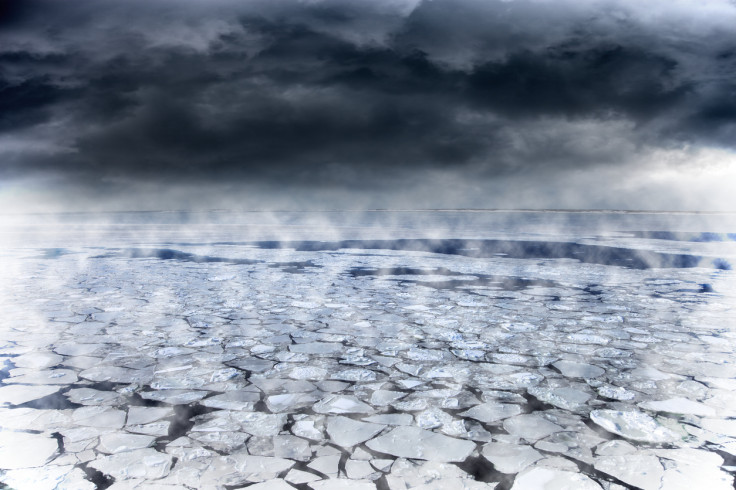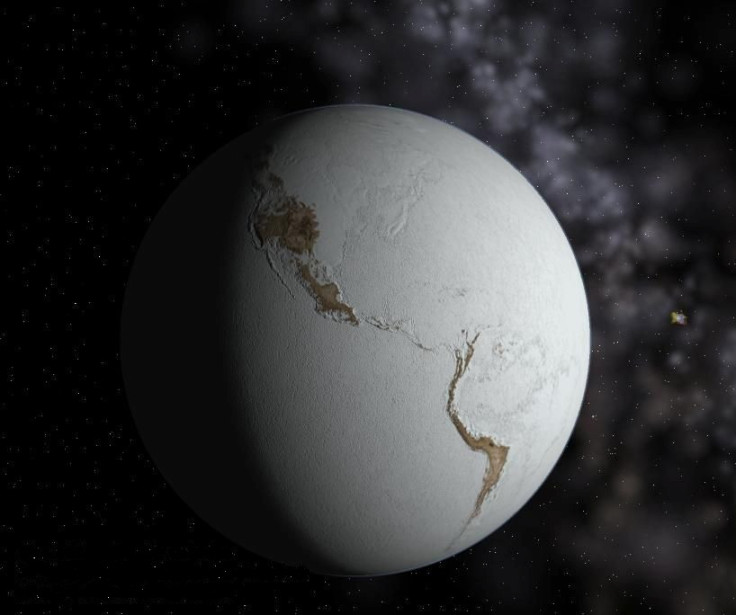Mystery system stabilising CO2 concentrations prevents Earth from freezing over
Scientists find feedback mechanism stops atmospheric CO2 from falling below a certain level.

An unidentified system appears to prevent CO<sup>2 concentrations falling below a critical level that would see Earth plunge into a deep freeze. Scientists have found that in the last 800,000 years, atmospheric CO<sup>2 levels have never fallen below a certain point, indicating something is keeping them in check – but what that is they do not know.
Atmospheric CO<sup>2 concentrations are widely known today for the role it plays in climate change. At the moment, high concentrations is resulting in global warming. This is largely due to man-made greenhouse gas emissions since the Industrial Revolution. While estimates vary, it is thought we are on track to see global temperatures increase by around 4C by 2100 (if nothing is done to limit emissions).
But what about when CO<sup>2 concentrations fall? Researchers Eric Galbraith and Sarah Eggleston were looking at global temperatures and atmospheric CO<sup>2 concentrations over glacial cycles over the last 800,000 years.
In their study, published in Nature Geoscience, the scientists looked at Antarctic ice core to determine CO<sup>2 concentrations at different points in Earth's history. At the coldest points, CO<sup>2 levels were lowest.
However, they found that during each period of cooling (or ice ages) they never fell below 190 ppm (parts per million). Had they gone below this level, it would have triggered extreme cooling that would have meant ice ages lasted for far longer than they did – up to around 10,000 years.
"Global temperatures and atmospheric CO<sup>2 concentrations varied widely over the glacial cycles of the past 800,000 years. But despite this variability, Antarctic ice cores have shown that CO<sup>2 concentrations were very similar during all the coldest points of these cycles," they wrote. "Remarkably, the recurring minimum CO<sup>2 concentrations fall on the lower bound of any known in Earth history."

The researchers said that while there are "multiple explanations" as to why CO<sup>2 concentrations do not fall below this level, they said results are "are consistent with a strong negative feedback to decreasing CO2 that resisted further cooling". This, they say, could related to the biosphere and how photosynthesis is limited during cold periods. Restricted growth could reduce how much carbon is transferred from the atmosphere to the soil and ocean, preventing CO<sup>2 levels from falling any further.
Galbraith said: "We know that, over hundreds of thousands of years, CO2 is regulated by slowly reacting with exposed rocks. But this would be too slow to explain the stability during periods of only a few thousand years, as we see in the ice cores. So it must have been some other mechanism that kicked in at very low CO2."
They said further research will be needed to work out the feedback mechanism involved. "The absolute value of this minimum should be regarded with care, as specific measurement methods in technically challenging sections of the ice core can also lead to erroneous results," the study said.
"However, if real, its brevity (a few thousand years) could indicate the timescale on which the negative feedback operates, and further study of this time interval might help to test possible mechanisms regarding what appears to be a fundamental, yet unexplained, homeostatic regulation of the Earth system."
© Copyright IBTimes 2025. All rights reserved.






















